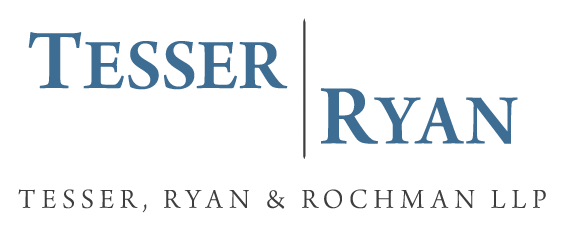Will Michael Cohen be Disbarred?
Tesser, Ryan & Rochman, LLP has over twenty years of experience dealing with attorney and professional ethics matters, including disbarments, suspensions, moral character hearings, and other licensing issues. We can be contacted at (212) 754-9000.
Yesterday, Michael Cohen, former attorney for President Donald Trump and former vice president at the Trump Organization, pleaded guilty to eight criminal counts, including tax evasion, making a false statement to a financial institution, willfully causing an unlawful corporate contribution to a campaign, and making an excessive campaign contribution.
By doing so, Cohen admits that he is guilty of these charges, making a trial unnecessary. Cohen will likely serve jail time for his offenses. What does this mean for his license to practice law?
New York lawyers must practice in accordance with the Rules of Professional Conduct (“Rules”). The Rules and the New York Judiciary Law determine how attorneys conduct their practice, and the procedures for disciplining—and in some cases disbarment—attorneys who have violated their ethical obligations.
Since Michael Cohen was admitted to the bar in New York’s Second Department (which includes Brooklyn, Queens and Long Island), the Second Department Appellate Court will be responsible for implementing any discipline pursuant to Cohen’s license to practice law.
Under New York Judiciary Law § 90(4), any attorney who is convicted of a felony will automatically be disbarred and will no longer be permitted practice law in the state of New York. See Matter of Marigotta, 60 N.Y.2d 147(1983). Since the charges to which Cohen pleaded guilty are felony charges, if his plea is accepted and he is convicted, Cohen would be automatically disbarred from the practice of law in New York. Disbarred attorneys may not apply to be reinstated for at least seven years.
This might change, however, if President Trump pardons Cohen. Under New York Judiciary Law § 90(5)(a), the court may overturn Cohen’s disbarment, but this is discretionary: the court may also decide that Cohen should remain disbarred.
Even if Cohen is not automatically disbarred, it is likely that Cohen’s admitted conduct violates several of the Rules of Professional Conduct.
Specifically, under Rule 8.4(b), “a lawyer . . . shall not . . . engage in illegal conduct that adversely reflects on the lawyer’s honesty, trustworthiness or fitness as a lawyer;” and under Rule 8.4(c), “a lawyer . . . shall not . . . engage in conduct involving dishonesty, fraud, deceit or misrepresentation.”
Violations of the Rules are investigated and prosecuted by the State Attorney Grievance Committees. Following an investigation, the Committee can bring a case before the State Appellate court, in this case the Second Department, and recommend a punishment. The Committee’s recommendation will depend on the severity of the violation, which Rules were violated, the situational context of the violation, and the attorney’s history of discipline.
These Rules do not apply only in connection with the attorney’s practice of law, but also with their conduct in daily life. It does not matter whether his actions were in connection with his representation of Donald Trump or not.
This admitted conduct clearly implicates Cohen’s honesty, and it is highly likely that such crimes constitute violations of the Rules. These are serious violations that often result in disbarment or suspension.
Attorneys have obligations not only to their clients, but also to the court, the government and the public. If you have questions about the obligations of attorneys or other professionals, call Tesser, Ryan & Rochman, LLP at (212) 754-9000.
